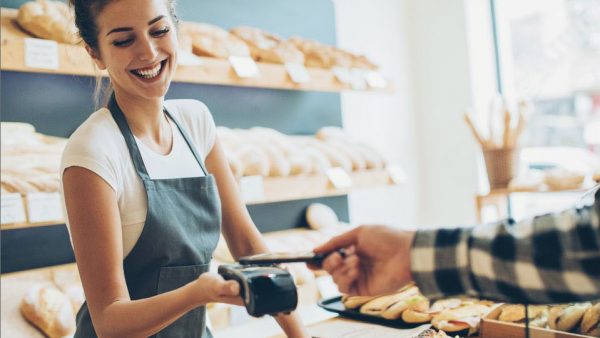COVID-19 prompts spike in online banking
Tasmanians are increasingly embracing electronic and online banking to avoid using cash during the coronavirus emergency.
MyState Bank says customers are steering away from cash in favour of contactless payments and are becoming increasingly comfortable with card-based transactions and online banking.
The change in MyState Bank customer behaviour in April to-date compared to March has seen a significant shift. The share of overall transactions make up by ATM usage and cash withdrawals through a MyState branch is down 29 percent. The shift away from in-person transactions to those conducted remotely has led to the increases in the proportion of online transactions since the start of April, including online BPAY payments with share up 20 percent, New Payments Platform (NPP) transactions up 20 percent, PayPal transactions up 40 percent while the share of Visa Debit transactions have increased by eight percent.
Call volumes and customer request emails to MyState’s Contact Centre have also increased with the number of calls rising by nearly 30 percent and the email requests doubling during the last month.
MyState Bank is experiencing increased demand for its internet and mobile banking services with new registrations for the services up 55 percent on the 12-month average. Overall the number of customer’s actively making use of these channels has climbed more than four percent since the introduction of social distancing and ‘stay-at-home’ measures in Australia.
MyState’s Managing Director and CEO Melos Sulicich said no doubt people were heeding the advice to avoid using cash where possible to remove any risk of COVID-19 transmission by bank notes or coins.
“At the same time, we have introduced a range of measures and advice for customers who may not be able to access bank branches as a result of the current emergency,” Mr Sulicich said.
“While all MyState branches remain open and are providing the full range of banking and financial services, social distancing and other preventative health measures may mean many people may not be able to undertake their banking or their normal day-to-day activities in the usual way.
“As well, many retail establishments are now demanding debit and credit card payment.
However, Mr Sulicich said many elderly and vulnerable customers were traditionally high branch users and Tasmanians were generally lower users of digital banking services such as debit and credit cards and online banking.
“We are in extraordinary times and we are doing all we can to assist customers to do their banking as easily as possible,” he said.
“Online banking through either internet banking or our mobile app provides real advantages and MyState has introduced a simple-to-use guide explaining how to bank without using a branch.
“We also have online tutorial videos to help people through the process of banking online and can provide assistance in-branch or over the phone if required.
Mr Sulicich urged more internet savvy customers to assist their family members, friends and neighbours who may be unfamiliar with online banking or the use of a debit card.
“If you have a relative or friend who needs help, obtain a copy of our guide and assist them to access MyState Bank.
“Most day-to-day banking can be conducted 24-hours-a-day, seven-days-a-week through Internet and Mobile Banking. This includes checking account balances, viewing recent transactions, transferring money and paying bills using BPAY.
“You can even schedule transfers for regular bills or rental payments, activate a new card, send secure messages or instructions to MyState and set up eStatements.
“Internet Banking works best from a PC, laptop or iPad and the mobile app is also available for downloading on smartphones and tablet devices through the App Store or Google Play.”
Mr Sulicich said assistance was available by calling MyState’s Customer Care team on 138 001, online at mystate.com.au, or at any MyState Bank branch.



